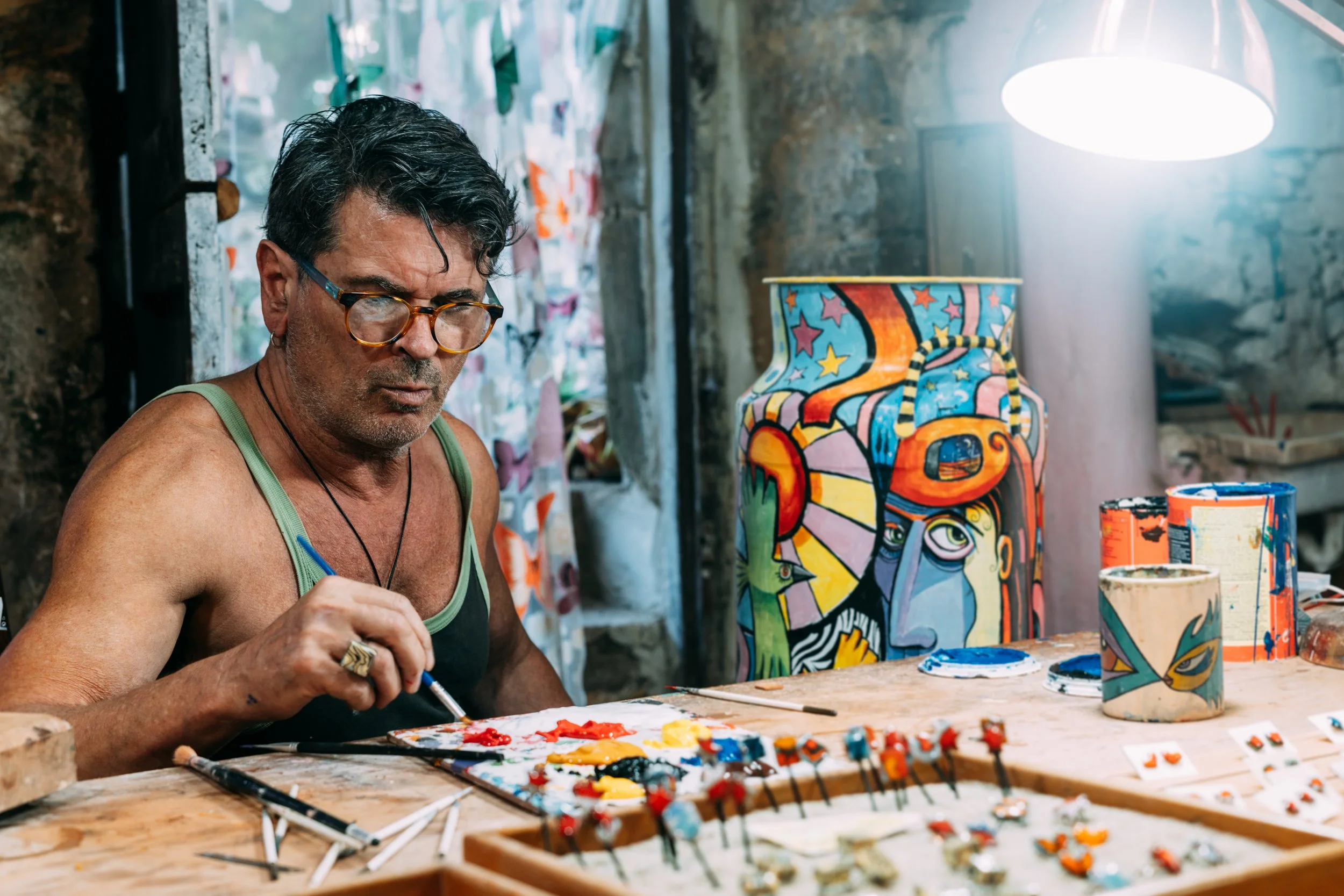Differences Don't Have to Be a Downside
— by Laura Whitaker
We come into the world and we are separated by our differences and similarities. Age separates us into grades, where we live commonly defines our languages and cultures, academic skill sets put us in classes, and gifts, talents and interests separate us into extracurriculars and eventually careers. Without realizing it, we become wired to see difference as a downside.
As a non-profit leader who serves individuals of all abilities, my mission is to teach generations both now and in the future to reach beyond these differences. As a parent, my responsibility is to teach my children to challenge the natural boundaries. And as a believer in Christ, it is my joy to inspire people without disabilities to learn from people with disabilities. Leaders of all walks, but especially those who follow the example of Jesus, have the powerful opportunity to change the perspective of our community at large by simply modeling to their organization a posture of childlike faith and the perspective of Jesus.
Early in my career, I learned what this powerful perspective actually was. I was asked to take one of our participants at ESP, a teenager with an intellectual disability, to the hospital from camp in an ambulance. I met his single dad at the hospital. As I watched him cradle his son in the hospital bed, his story began to unfold. When his son was born, his pastor told him there was hidden sin in the family which caused his son’s disability. This led to workaholism and alcoholism, avoiding his son for the first 10 years and eventually avoiding his wife and daughter as well. One day, he was on a business trip and at an all-time low. He opened a drawer in his hotel room and took out the Bible. It opened immediately to John 9, the story of the man who was born blind. The disciples ask Jesus, “who sinned, this man or his parents?” and Jesus responds with, “Neither this man nor his parents sinned,” said Jesus, “but this happened so that the works of God might be seen through him.” Jesus uses disability, a blind man, to help others see. The father realized in that moment that his son was a gift meant to help him and others to see Jesus.
I often have described this idea using a concept I call the dandelion effect—the parallel with a dandelion and how we see difference. When you are a child, you see a dandelion as a beautiful yellow flower. In the same way, when you are a child, you do not see differences as negative. You notice the difference but see it as intriguing and a delight.
Somewhere along the way to adulthood, you begin to see dandelions as a weed and similarly, we begin to see disabilities or differences as negative. As business, community and faith leaders, we have the ability to challenge ourselves to be called back to the childlike heart, Jesus’ heart, and teach those around us to hold onto that beautiful perspective. Like any other change in our culture, this takes time and intentionality.
When spending time with kids with special needs, it does not take long to see beyond their disability to their ability. The beauty in seeing their ability allows us to see ourselves and others the way God has made us: “In the same way, let your light shine before others, that they may see your good deeds and glorify your Father in heaven.” (Matthew 5:16 NIV).
I have seen firsthand when people of all abilities are given the same opportunities, it is not only life-giving to them and their families, but to our entire society. It is a beautiful juxtaposition to see that we who are considered “typically developing” can actually learn some of life's most important lessons from those with disabilities.
Multiple studies show that by educating children about individuals with disabilities at a young age, they become more accepting of differences throughout their entire lifetime and are more likely to form relationships with people with disabilities. Imagine how that could change our world if we also educated those who listen to us as leaders to this same concept.
“As each has received a gift, use it to serve one another, as good stewards of God’s varied grace.” (1 Peter 4:10 ESV)
As entrepreneurs, believers and leaders, may we use the opportunity to showcase the delight instead of the disability as we create a world that embraces people of all abilities, one moment, one interaction at a time.
###
Laura Whitaker began as a volunteer at Extra Special People in 2003. With her passion for enhancing the lives of children with developmental disabilities and her specialized education in this field, Laura was selected as the Executive Director at the age of 19. As Executive Director, Laura uses her leadership and management strengths to manage staff, oversee year-round programs, summer camps and business ventures like Java Joy while raising millions of dollars for the organization. Her favorite part of the job is getting to hug the many children who walk through the ESP doors. For more information, visit www.espyouandme.org.
Related articles
With a deep-rooted identity in Christ, we can begin to find joy, inspiration, and meaning in whatever we do.
Empathy requires vulnerability. Could I be brave enough to be vulnerable? If I wanted someone to rejoice or weep with me, I needed to let people know how I felt. Trust people with my emotions, needs, and mess.
Have you ever felt called to do something, and you knew beyond a shadow of a doubt it was God telling you to do it?
Entrepreneurship lessons from the owner of Tacos 4 Life, a mission-driven taco restaurant.
“Selling my business and taking home $100M was the worst decision I ever made,” a well-known entrepreneur once said. I was floored. How could this be?
You cannot grow what you do not take ownership or responsibility over the results. If permission makes the next level possible, ownership makes the next level real. It's taking dominion (i.e. dominating/ruling) over the area God has assigned to you.
When I asked him the question, “What do you want?” he slowly responded with the words: “To paint again.” The slowness of his response came out of guilt he felt because he’d been led to believe that an answer like that was selfish
“You are right. I have to let God paint the picture!”
Now, many years later, the picture that God painted for her is beautiful, though very different and much better than anyone could have dreamed.
Disordered words can shape and distort our very identity and our behavior at work. In some sense, we can become who we say we are, which means we need to be very careful how we describe who we are.
I believe that God is most glorified in us when we are most satisfied in Him. And I also believe that if we were to examine our hearts and minds, we would find we spend a lot of time and energy often seeking ways to be satisfied (outside of Jesus), looking to things on this earth for fulfillment, and searching for purpose and meaning to all our work and toil—and all our activities.
I recently realized the power of fixing my eyes on beautiful things when—on a particularly frustrating day—I hopped in my car, ready to tell God how annoyed I was by various situations, but caught a glimpse of a cluster of trees that were the perfect blend of fall colors.
Many of us entered entrepreneurial work to find a sense of satisfaction, meaning, and significance. Eventually, though, we all realize we can’t find those things there.
"Too many times, I feel like a chameleon, trying to figure out what color I must become next to play things safe and prove my worth to others. As a leader, I’m constantly shifting, not firmly planted in my convictions. I don’t understand all of the reasons I act this way, but I know this isn’t the leader I want to be."
Though most of us aren’t bowing to statues or poles, we’d argue from personal experience that many leaders’ idol of choice is the idol of our own abilities: a good thing we are tempted to distort into the ultimate thing.
When we consider the true gospel, it seems as though, we almost exclusively view it in light of our personal lives. So we end up holding two very different, frankly, mutually exclusive gospels. It’s no wonder we struggle to integrate our faith and work.
If you do not understand who you are, you will always be looking in other places for the answer. You will take your questions of identity and self-worth to your job or your spouse or another man or woman.
Line your life up against the right guides and they’ll guide you home. Three of the guides I use to line up against are satisfaction, leverage, and maturity. Let me tell you why.
The past 2 years of my life have been a long season of learning a lot about obedience. It hasn’t always (read: rarely) been a pretty or smooth process.
Confess your sins to one another talk to each other about what's going on in your life. And that will keep you in a place of freedom.
Standing out matters because it’s hard. Truly standing out, from the inside-out, takes more than just a new habit, lifestyle, or mindset. It takes a transformation of the heart, a supernatural act of God.
As entrepreneurs, believers and leaders, may we use the opportunity to showcase the delight instead of the disability as we create a world that embraces people of all abilities, one moment, one interaction at a time.
What’s your job? Often times the last person to have a clear job description, KPIs and defined responsibilities is the CEO. It’s easy to have a role by default rather than by design.
A faith driven entrepreneur is an active participant in the bringing about of God's Kingdom on Earth as it is in Heaven.
Despite everything I knew about where I should find my sense of identity and worth, I had found too much of it in something other than my relationship with God.
God's gifts are the best. The Creator of Orion's Belt does not lack anything to give you. When God gifted Abraham land "so that all of the World would be blessed," He gave them the very best.
I have become convinced that humility is God's secret weapon to thwart the ultimate enemy of pride and bring pockets of heaven to earth. If I can focus on how Jesus must increase and I must decrease, then God will, without fail, use me for his purposes. Easier said than done.
What would it look like if we all consult the people ‘less valuable’ to truly understand their actual and not an assumed need? What would it look like to brainstorm solutions together with people who have lower education levels and a scarcity of resources, yet hold an abundance of community connection and resourcefulness?
JD Greear dives into the connection between the amazing reality of our identity as children of God and how that identity inspires us to love our neighbors through our vocations.
Henry Kaestner and Don Flow talked to a group of people about what defines a Faith Driven Entrepreneur and Leader.






























"Are you a rich young ruler?" is a question every faith-driven leader must honestly assess if they are to lead an organization with faithful integrity in alignment with Biblical beliefs, principles, and priorities (what I will call business a better way).